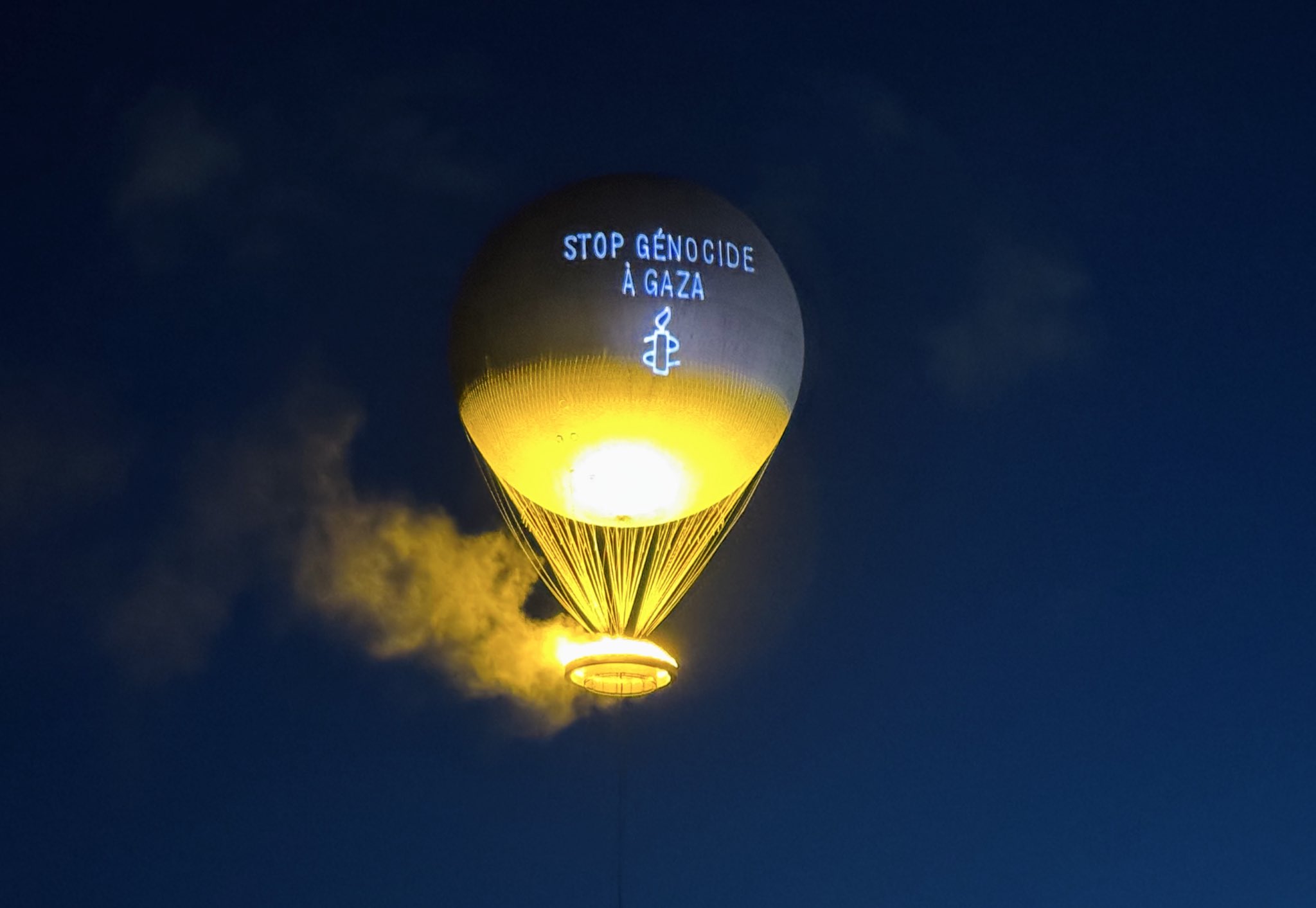All Eyes Turn To Gaza As Humanitarian Crisis Deepens Amid International Pressure and Planned Airdrops
As the humanitarian catastrophe in Gaza continues to spiral, international leaders are ramping up pressure on Israel to allow unhindered access to essential aid.
Canadian Minister Anita Anand confirmed the safe evacuation of 11 Canadian children and their mothers from Gaza last night, while strongly criticizing the blockade of humanitarian assistance, including over $300 million in Canadian aid that remains unable to reach civilians in desperate need.
 |
| Image Source: Amnesty France |
“This is simply unacceptable,” Anand said, emphasizing Canada’s call for an immediate ceasefire and for Israel to respect the territorial integrity of Gaza and the West Bank.
UN Secretary-General António Guterres echoed the urgency, calling the crisis not just humanitarian but a “moral crisis that challenges the global conscience.”
The UN continues to demand the immediate release of hostages and unimpeded aid access to Gaza’s civilian population.
UK Prime Minister Keir Starmer said his government is accelerating efforts to deliver aid and evacuate critically ill children for treatment in Britain.
“Israel must allow aid over land to end the starvation,” he said, adding that the UK is working with Jordan on urgent deliveries.
Israel, under mounting international scrutiny and increasing reports of starvation-related deaths, announced Saturday night that it would begin airdrops of humanitarian aid in Gaza, in coordination with international agencies.
It also plans to open humanitarian corridors and begin “humanitarian pauses” in populated areas to facilitate UN convoy movements. However, combat operations against Hamas will continue, according to Israeli military sources.
Despite these announcements, questions remain about the specifics of the operation, including drop locations and how the newly created Israeli-backed Gaza Humanitarian Foundation (GHF) will be involved.
Jordan and the UAE confirmed that the first airdrops, focusing on food and infant formula, will commence immediately. The UK also pledged support.
Yet UNRWA chief Philippe Lazzarini warned that airdrops, while symbolically powerful, are “expensive, inefficient and can even kill starving civilians,” stressing that they are no substitute for sustained land-based aid routes.
Although Israel insists there’s no cap on aid truck entries, the UN has pointed to military constraints and widespread lawlessness that hamper effective distribution. Prior to March’s end of ceasefire, about 600 aid trucks entered Gaza daily; this week, Israel reported just 250 trucks entering.
On the ground, the situation remains dire. Firsthand accounts describe starving children, health workers putting themselves on IV drips to continue treating patients, and civilians braving gunfire just to reach food points.
With over 2 million displaced and little infrastructure left, the crisis has reached a critical tipping point, forcing the world to confront the limits of humanitarian diplomacy in a war zone.
Also Read:
Germany Steps In as E3 Leaders Demand Gaza Ceasefire, Humanitarian Access, and Two-State Solution
